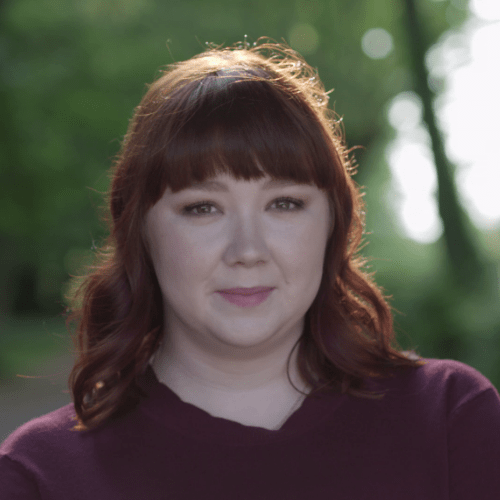I feel so fortunate to have been a part of Aware’s webinar on Living Well with Bipolar at the beginning of March. Talking about my own experiences, hopefully in a way that resonates with even one person, helps me to process my own feelings about my illness in a positive way. I appreciate hearing others’ perspectives or questions as they often make me re-examine my experiences in a new way.
Before the webinar some questions were asked specifically relating to stigma, and while these became part of the discussion, they have left me thinking about the decision I made early on to live openly with bipolar.
I said during the webinar how important it’s been for me to have control over my own life, how I can’t ever control the stigma others place on me, but I can choose not to allow it to permeate into my life. I also spoke about how I don’t use the word stigma to describe that feeling and action. I use the word shame. We all know shame, that nauseating feeling that we’re not good enough, that we don’t belong somewhere, that we’re lazy or selfish or stupid. At the deepest level, my worst and most recurring shaming thought is that my illness isn’t real and that I’m somehow making it up.
Ahead of the webinar someone asked whether we would agree that it’s best to not share a diagnosis because of the massive stigma that still exists, particularly in the workplace. I immediately felt the horrible, familiar pressure that came with memories of being in situations where I felt I could not talk about this enormous presence that is always with me, a diagnosis that has crept into every facet of my life and one which I could not untangle from my personal or working life no matter how hard I tried. I equally recognise that this may not be how everyone feels, and that many people may be more comfortable not sharing their diagnosis.
.png)
I think that ultimately it comes down to the difference between secrecy and privacy. Everyone has some aspects of their lives that are private. Privacy centres very much on the self, what we feel comfortable with, and what seems appropriate to us. Secrecy, however, is the opposite. It’s a focus on preempting how others will react, what others will say, and the fear of how we’ll be seen if other people know certain things about us.
This is why I’ve always been open about my illness. I’m not private about many things, that’s simply how I am most comfortable. When I got my diagnosis of bipolar I knew that if I was secretive about it in environments where I might need flexibility or support, it would be due to my fear of other people’s reactions. I didn’t and don’t want to live with that fear. Bipolar brings enough fear into my life already.
Either way, stigma is sadly unavoidable. Either I am shamed or stigmatised by other people, which has happened more times than I can count, or I would have lived in fear of what others would say. The difference was whether that shame was coming solely from others, or if I joined in and placed it on myself. I have found a freedom, especially with getting a little older, in dealing with my illness how I choose, without deference to what I have always thought of as old fashioned ideals of ‘getting on with things’. Silence and secrecy allow us to get on with nothing, except loneliness.
We will all make different choices about what we feel comfortable sharing and with whom. What I hope is that those of us who live with this illness never feel the need to be silent when it feels wrong, when we feel constricted by not sharing, when we miss out on opportunities for support or connection. We all deserve to live our lives in the way that seems best to us, the way that gives us our best quality of life. With this life long illness, when I get to the end of my life, I want to know that I lived it for myself.
– Sinead Keating
Sinead took part in Aware’s webinar “Living well with bipolar disorder” on 10 March, ahead of World Bipolar Day on 30 March. You can watch it back to hear from Dr Declan Lyons (Consultant Psychiatrist) alongside personal experiences of Rick and Sinead, by clicking here.
More information about bipolar disorder >>


